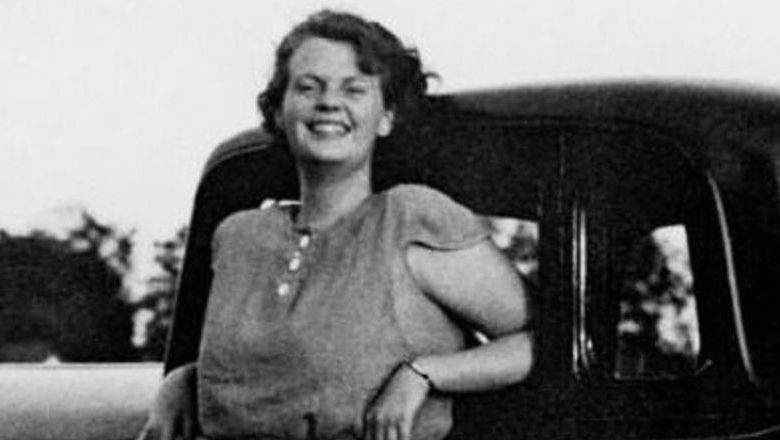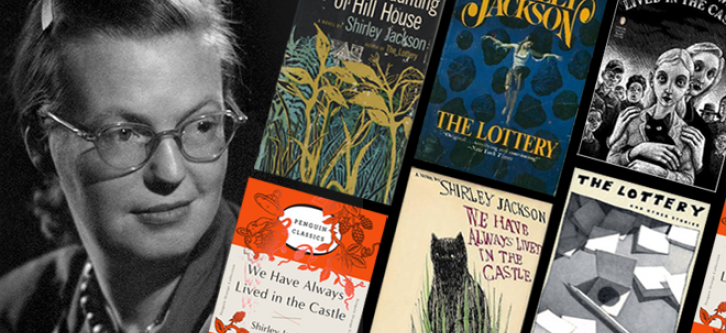
Shirley Jackson, is considered one of the most brilliant and influential authors of the twentieth century–widely acclaimed for her stories and novels of the supernatural, including the well-known short story “The Lottery” and the best-selling novel “The Haunting of Hill House.”
Born in San Francisco on December 14th, 1916, Jackson spent her childhood in nearby Burlingame, California. Her parents were conservative country-club people, who regarded their high-strung child with some perplexity. In her early teenage years, she spent her time writing poetry and short stories.
Jackson’s acclaimed short story “The Lottery”, was first published by The New Yorker in 1948. The story, though now a classic, is about a small New England village whose residents follow an annual rite in which they draw slips of paper until, finally, one of them is selected to be stoned to death—caused an immediate outcry when it was published, causing the magazine to receive a torrent of letters, the most the magazine had ever received in response to a work of fiction.
After reading the story, her mother saying “Dad and I did not care at all for your story in The New Yorker … [I]t does seem, dear, that this gloomy kind of story is what all you young people think about these days. Why don’t you write something to cheer people up?”
Jackson’s novel “The Haunting of Hill House” (1959) is often mentioned as one of the best ghost stories of all time. Jackson was inspired to write the novel after reading about a group of 19th century “psychic researchers” who rented a house they believed to be haunted in order to study paranormal phenomena. Upon its release, the novel sold briskly, earning Jackson a National Book Award nomination and high praise from critics. In its review, The New York Times called the story “caviar for connoisseurs of the cryptic” and described Jackson as “the finest master currently practicing in the genre of the cryptic, haunted tale.” It also caught the attention of Hollywood, and within four years MGM released a film adaptation, directed by Robert Wise. Since then, the novel has been made into a play, into a widely panned 1999 movie, and a Netflix series.
Jackson’s best-selling novel “We Have Always Lived in the Castle” perfectly demonstrates her talent for mixing creepiness with wit. Shortly after the novel’s publication in September, 1962, Jackson suffered a nervous breakdown and a prolonged bout of acute agoraphobia that prevented her going outside for half a year.
After years of writing and publishing, on August 8th, 1965, at the age of 48, Shirley Jackson died unexpectedly of heart failure during her usual afternoon nap.
The following year, her husband, Stanley Edgar Hyman published the first of two posthumous anthologies, “The Magic of Shirley Jackson”, a collection of short stories and three previously-published novels. This was followed in 1968 by “Come Along With Me”, the unfinished novel that Jackson was working on at the time of her death, along with sixteen short stories and three lectures. Years later, in 1997, two of Jackson’s children edited “Just An Ordinary Day”, a collection of many of Jackson’s previously unpublished or uncollected short stories, which received near-unanimous great praise.
Jackson’s last words in her journal, written six months before she died, suggest a woman heroically trying to persuade herself into optimism: “I am the captain of my fate. Laughter is possible, laughter is possible, laughter is possible.”









































